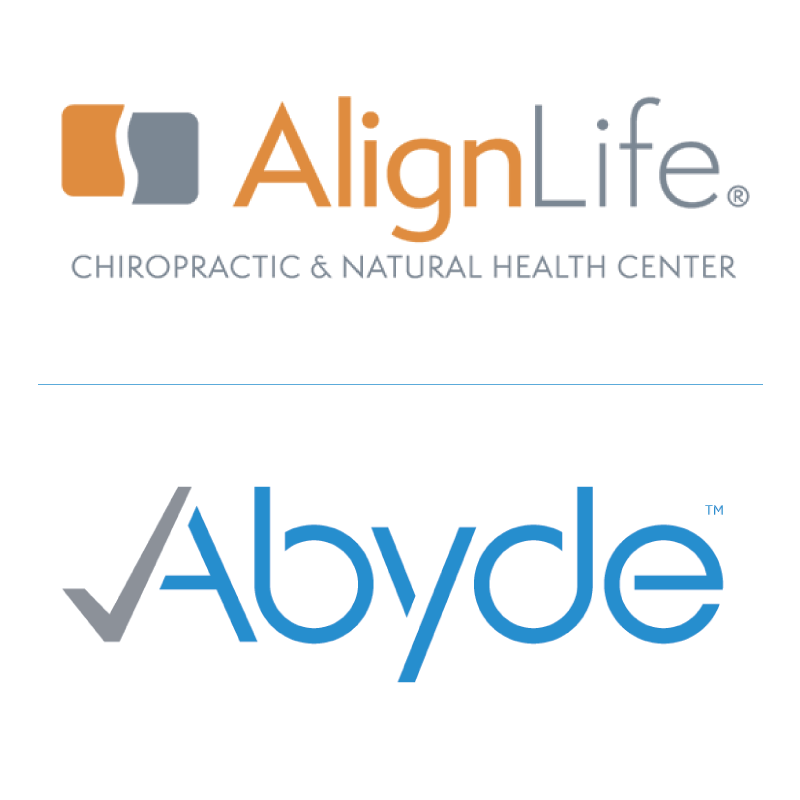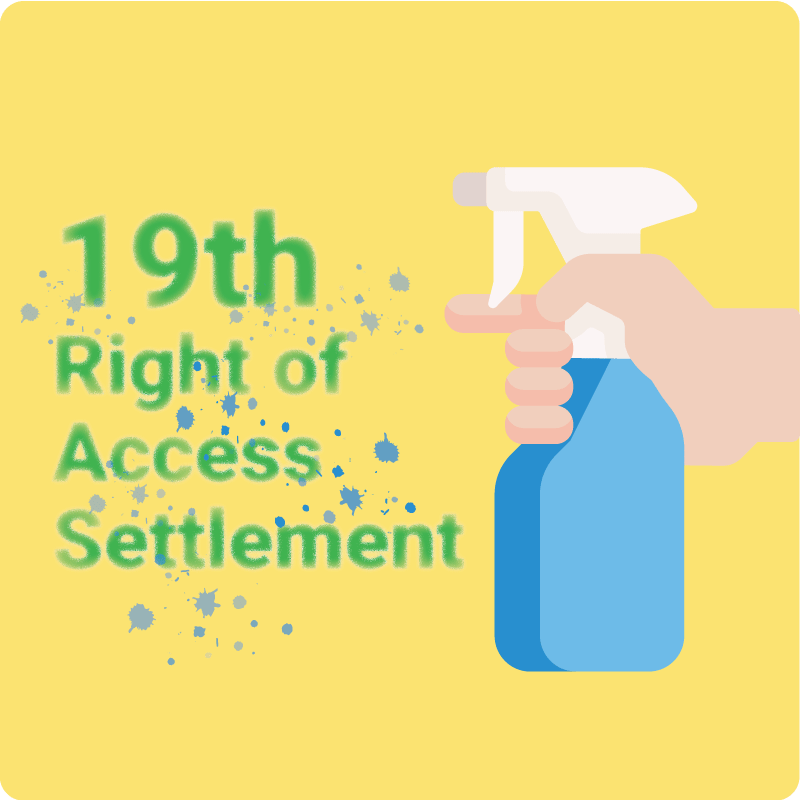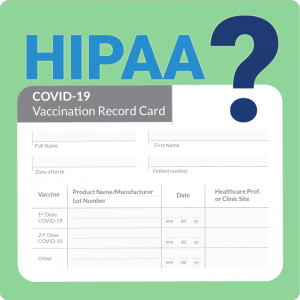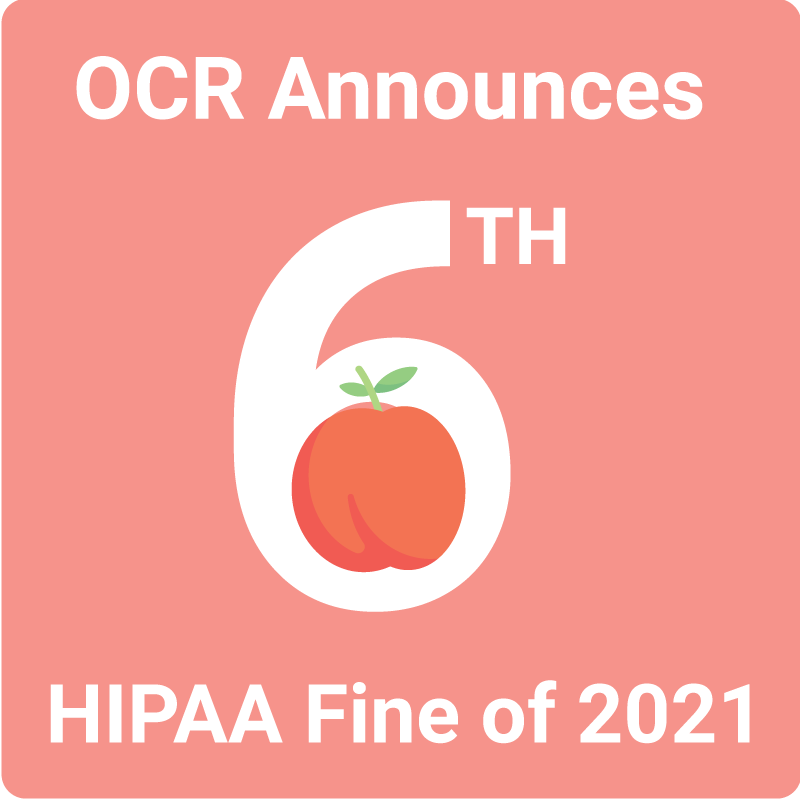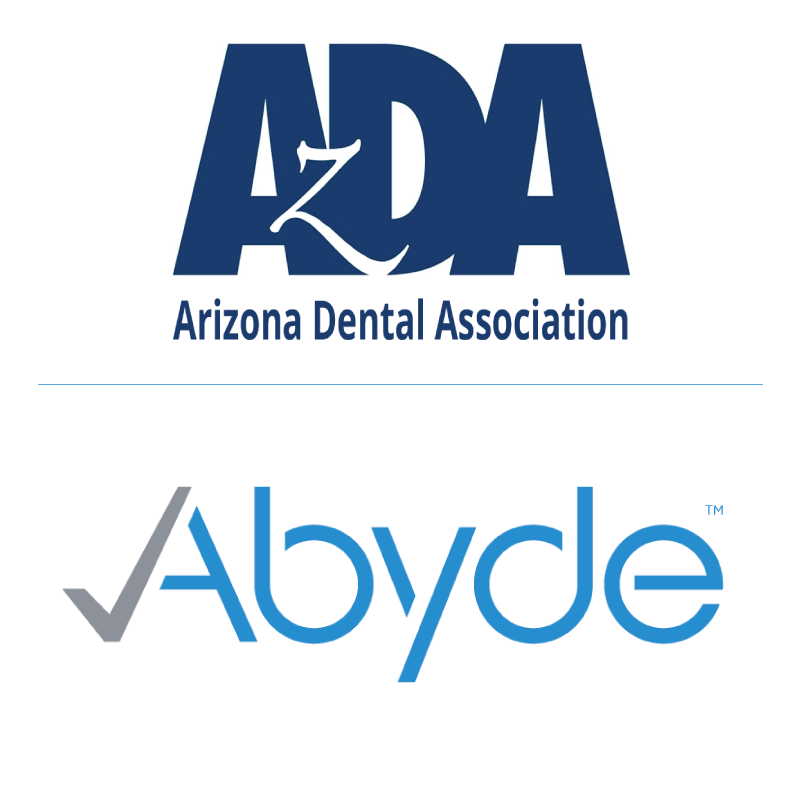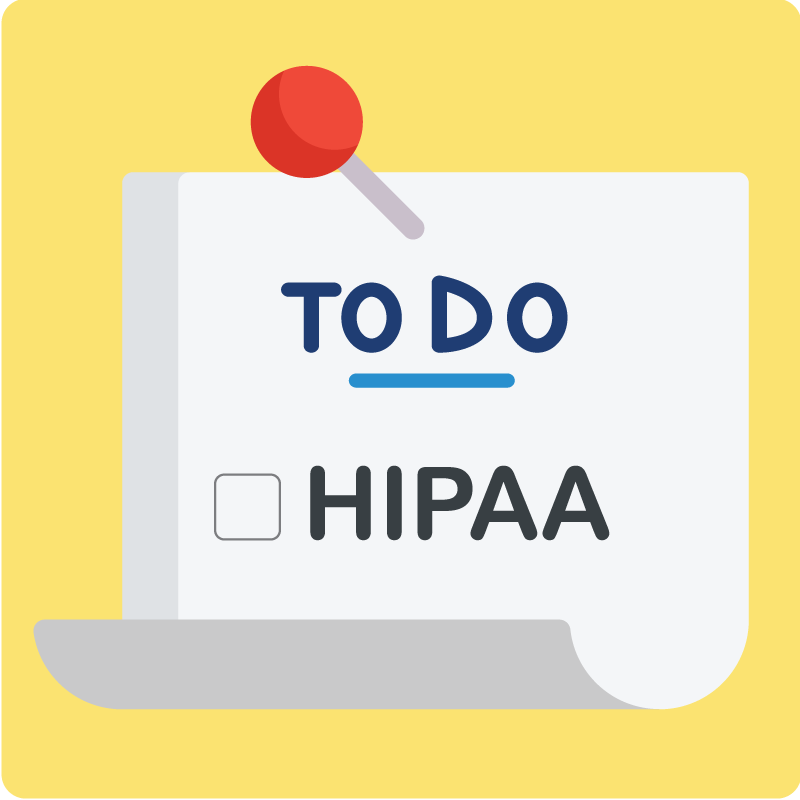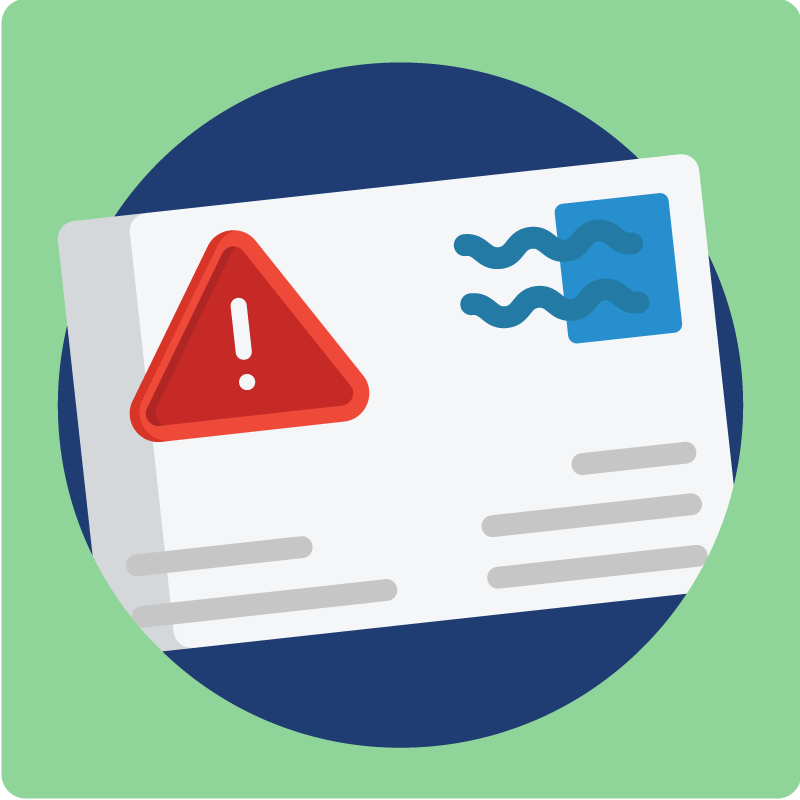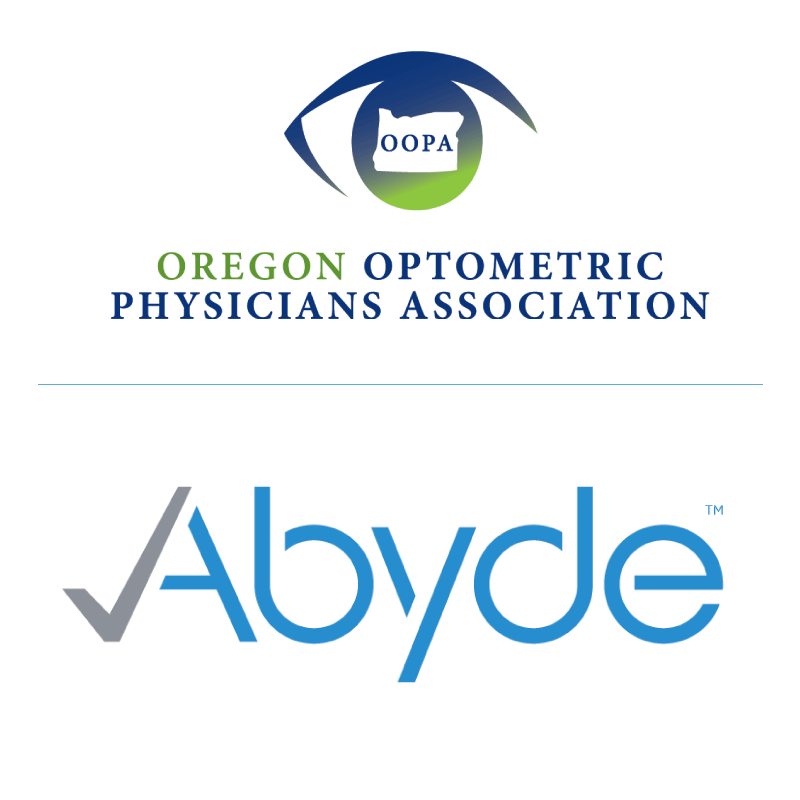June 9, 2021 June 9, 2021, Tampa, FL – Abyde, a user-friendly HIPAA compliance software solution for independent practices across the United States, is thrilled to announce their ongoing expansion and new partnership with AlignLife as their preferred HIPAA compliance provider. Together with AlignLife, Abyde will provide essential HIPAA compliance programs designed to complement chiropractic practices’ day to day operations. The partnership will give AlignLife practitioners exclusive access to a comprehensive HIPAA compliance solution that helps meet government-mandated requirements and safeguard against the recent rise in HIPAA violations and data breaches. Abyde’s software solution is the easiest way for independent providers to implement and sustain comprehensive HIPAA compliance programs. The revolutionary approach to HIPAA compliance guides practices through mandatory HIPAA requirements such as the Security Risk Analysis, HIPAA training for doctors and staff, managing Business Associate Agreements, dynamically generated policies and more. “We are honored to join AlignLife in providing tools that enhance workflows for their providers and practices – allowing them to focus on their patients, not administrative burdens,” said Matt DiBlasi, President of Abyde. “HIPAA compliance is a necessity for independent providers and we look forward to bringing education and resources to simplify meeting these complex government requirements.” “AlignLife is focused on improving independent practice management and our partnership with Abyde is a step in the right direction for our providers to ensure compliance,” said Keri Quin, Director of Franchise Support. “We are confident in their leading solution and know our practitioners will find instant value in the HIPAA compliance programs they provide.” About Abyde Abyde (Tampa, FL) is a technology company dedicated to revolutionizing HIPAA compliance for medical professionals. Launched in January 2017, Abyde was formed with the idea there could exist an easier, more cost-effective way for healthcare providers to comply with government-mandated HIPAA regulations. For more information on Abyde visit abyde.com or email marketing@abyde.com. About AlignLife Since 1999, it’s been our mission to provide the opportunity for our patients and their families to live a life full of vitality and optimal health. And our focus on health and wellness is not solely to make you healthy, it’s to prepare your body to achieve your life’s goals, whatever they may be. Read the full press release here.
OCR Announces 19th Right of Access Settlement
June 2, 2021 With the official kickoff of summer only a few weeks away, the Office for Civil Rights (OCR) is getting some last minute spring cleaning in – announcing their latest HIPAA settlement with a practice whose Privacy Rule violations couldn’t be swept under the rug. Diabetes, Endocrinology & Lipidology Center, Inc. (DELC) was handed a $5,000 fine and tasked with a two-year corrective action plan (CAP) to help clean up their “HIPAA mess” that started back in 2019. Today’s fine marks the 19th Patient Right of Access settlement since the OCR officially announced their initiative two years ago. And ironically enough – around the same time that the government was declaring their focus on enforcing the standards around patient rights, DELC became a perfect example of just how many practices weren’t upholding them. The incident began in July of 2019 when a parent requested access to her minor child’s health records. After DELC failed to take timely action in response to the request, a complaint was filed with the OCR in early August 2019. It wasn’t until the OCR got involved that the healthcare organization finally provided access, almost two whole years after the initial request. Though the fine amount might seem on the lower end of what the OCR typically doles out, the corrective action plan has plenty of requirements to make up for it and just to name a few: This hefty “honey-do list” shows that the dollar amount doesn’t cover all the costs associated with violating HIPAA and proves why it’s so important to get your practice’s compliance efforts in order before an incident occurs. So while DELC took longer to fulfill the request than it would to dust off every book in the Library of Congress, the OCR hasn’t delayed in performing quite a bit of housekeeping themselves. With 19 settlements and $1,093,500 collected on behalf of patient right of access violations, the OCR has stuck to their initiative and continued to sweep up any and all violators. And though the settlements all range in resolution amount, corrective action requirements, and organization size and specialty – the message has always been the same and was reiterated by Acting OCR Director Robinsue Frohboese in that, “It should not take a federal investigation before a HIPAA covered entity provides a parent with access to their child’s medical records. Covered entities owe it to their patients to provide timely access to medical records.”
Vaccination Status & HIPAA
May 28, 2021 News reports centered around patient privacy and COVID-19 seem to break on the daily – bringing newfound fame to HIPAA law and even more speculation on what is – and isn’t – covered within its requirements. Most recently, the conversation of vaccinations has been a trending headline with the question of ‘HIPAA violation’ commonly featured. So while there’s still plenty of uncertainty where COVID-19 is concerned, hopefully, we can at least shed some light on where HIPAA truly comes into play. When it comes to the commonly asked question of whether HIPAA protects against employers and other businesses requesting vaccination records, the short answer is no. HIPAA law only applies to covered entities which therefore means that private businesses and citizens are not obligated under the stringent data protection laws and CAN ask about vaccination status. However, patients do have the right to not disclose their own health information and can choose to decline to answer, but based on state-specific laws and company requirements there may be repercussions as a result. In a quote from Kayte Spector-Bagday, a lawyer and bioethicist at the University of Michigan, she highlights the popular misconception in saying, “People often feel like HIPAA protects them from being asked about their medical information, or prohibits other people from asking about their medical information. Neither is true. HIPAA prohibits health professionals, such as your doctor, from sharing your identified health information without your permission in most circumstances. People can always ask about your health information, and you can almost always decline to answer.” So where does HIPAA come in? As we just mentioned, healthcare organizations and their business associates are liable under the federal law meaning that your practice can NOT disclose vaccination information (or any protected health information for that matter) unless direct patient authorization is granted. So, say a patient’s employer calls your office to ask about their employee’s vaccination status. Well, because of the standards outlined in the HIPAA Privacy Rule, you cannot disclose any sensitive health information without patient consent, and doing so would result in a HIPAA violation. While vaccination status and test results are the trending topics at the moment, it’s important to note that these stipulations go for any and all types of patients’ health information, not just what’s related to COVID-19. And while the current state of the public health emergency still leaves a lot of unanswered questions – when it comes to your practice’s ability to disclose protected health information (PHI), HIPAA law still applies.
OCR Announces HIPAA Settlement with Peachstate Clinical Laboratory for Security Rule Violations
May 25, 2021 No matter the time of year, HIPAA enforcement never goes out of season and we have today’s announcement from the Office for Civil Rights (OCR) to prove it. The latest HIPAA settlement and sixth of the year involves Peachstate Health Management, LLC – a Clinical Laboratory based out of Georgia who provides diagnostic and laboratory-developed tests. The violation stemmed from Peachstate’s failure to meet several of the HIPAA Security Rule requirements and led to a $25,000 fine and 3 year corrective action plan issued by the OCR – a result that probably didn’t leave the organization feeling too peachy afterall. So what happened? Well it may seem like comparing apples to oranges when looking at what triggered this settlement versus the ones we’ve recently seen centered around patient right of access violations and large cyberattacks. But the latest violation resulted from a variety of different and very relevant factors from data breaches to telehealth and business associates with systemic noncompliance at its core. It started back in 2015 after the U.S. The Department of Veterans Affairs (VA) reported a data breach involving their telehealth services program managed by its business associate, Authentidate Holding Corporation (AHC). A year later, the OCR initiated an investigation into the business associates’ compliance program where they uncovered that AHC and Peachstate had earlier entered into a reverse merger in January of 2016 whereby AHC acquired Peachstate. As a result of this finding, the OCR opened up another compliance review into Peachstate and found that the clinical laboratories were ripe for the picking in their ongoing noncompliance in the following key areas: In addition to the fine and extensive corrective plan that the OCR issued, their response to the incident and message for other healthcare organizations is the cherry on top and should not be taken lightly. “Clinical laboratories, like other covered health care providers, must comply with the HIPAA Security Rule. The failure to implement basic Security Rule requirements makes HIPAA regulated entities attractive targets for malicious activity, and needlessly risks patients’ electronic health information,” said Robinsue Frohboese, Acting OCR Director. “This settlement reiterates OCR’s commitment to ensuring compliance with rules that protect the privacy and security of protected health information.” So in other words – the only way to avoid being the low-hanging fruit for a HIPAA violation is ensuring that your healthcare organization has met these basic standards that Peachstate was missing. And while an apple a day might keep the doctor away, this latest settlement is yet another example of why having a complete compliance program in place is so essential to keeping your practice away from OCR scrutiny and avoiding a HIPAA fine like this one.
Abyde partners with Arizona Dental Association to provide comprehensive HIPAA compliance solutions to Arizona dental practices
May 12, 2021 May 12, 2021, Tampa, FL – Today, Abyde announced their latest partnership with the Arizona Dental Association that will help deliver their user-friendly HIPAA compliance software solution to AzDA members. This latest collaboration with the Arizona Dental Association further proves Abyde’s continued efforts to help independent dental practices meet mandatory government requirements in the simplest way possible. The partnership will provide AzDA members with essential tools to achieve HIPAA compliance on an ongoing basis. Abyde’s software solution is the easiest way for any sized dental practice to implement and sustain comprehensive HIPAA compliance programs. The revolutionary approach to HIPAA compliance guides providers through mandatory HIPAA requirements such as the Risk Analysis, HIPAA training for doctors and staff, managing Business Associate Agreements, customized policies and more. “As the government continues to show a clear focus on HIPAA non-compliance, having a complete and ongoing compliance program in place is more important now than ever,” said Matt DiBlasi, President of Abyde. “Teaming up with the Arizona Dental Association will provide Abyde’s intuitive compliance solution to even more of Arizona’s dental providers, giving them confidence and peace that their HIPAA program is up to par.” “The Arizona Dental Association is excited to work together with Abyde to provide our members with the tools to help achieve HIPAA compliance,” said AzDA Manager of Communications/Business Development Jeremy Tuber. “We’re hoping our members find instant value in the Abyde solution.” About Abyde Abyde (Tampa, FL) is a technology company dedicated to revolutionizing HIPAA compliance for medical professionals. Launched in January 2017, Abyde was formed with the idea that there could exist an easier, more cost-effective way for healthcare providers to comply with government-mandated HIPAA regulations. For more information on Abyde visit abyde.com. About AzDA The Arizona Dental Association (AzDA) is the voice of dentistry in Arizona. With over 2,500 member dentists, the AzDA is dedicated to empowering members to advocate for better oral health of Arizonans and provide the highest quality care for their patients. Read the full press release here.
HIPAA Protected Health Information
May 7, 2021 Most healthcare professionals understand many of HIPAA’s regulations are all about safeguarding protected health information (PHI), but there is much confusion in attempting to define what PHI actually is and is not. We all know that things like social security numbers and bank account information should be kept under lock and key but it’s not just the obvious details that could be used maliciously. These are only two examples of the 18 different identifiers that constitute PHI and all it takes is for just one to fall into the wrong hands for your practice to have a HIPAA breach on yours. So ensuring that you’re fully safeguarding this sensitive data starts with having a complete understanding of what needs to be protected and knowing why it’s so important that you do. What are PHI and ePHI? PHI can be defined as any personal health data created, transmitted, received, or stored by a covered entity and their business associate (BA) that could potentially identify an individual. Now between the many documents, forms, records, and other communications that your practice handles on a daily basis – PHI is more than likely featured on most if not all of these things. As you probably already know, and the 86% of providers currently utilizing Electronic Health Records (EHR) can attest to, many of these communications are done so electronically and therefore contain electronically protected health information (ePHI). So whether the information is transferred, received, or simply saved on paper or in an electronic form – if it consists of any one of the following identifiers of PHI, it needs to be properly protected: Why does it need to be protected? So now that you know what fits the bill of PHI – it’s important to know why and how it should be protected. To hackers and other individuals with malicious intent, a healthcare practice containing patients’ sensitive information is a gold mine considering a single medical record can be valued up to $250 on the black market. Now to put that into perspective, financial and banking information is only valued at $5.40 – so why such a large price tag on PHI? Well, unlike a credit card – if your sensitive health information gets into the wrong hands you can’t just cancel the card or change your information. Healthcare data breaches are hard to detect, and once that sensitive information is out there, it’s much more difficult to get back. How should it be protected? As you can see from the 18 identifiers listed above, PHI comes in many different shapes and sizes and requires more than just having locks on your doors and passwords on your computers to keep out of harm’s way. HIPAA law outlines how PHI should be protected in its Security and Privacy rule requirements – providing administrative, technical, and physical controls that are all essential for securing patient data. While these safeguards help to protect PHI when it’s being stored and handled within your practice, encryption is key to maintaining data integrity when it’s being sent or received and proper disposal is crucial when the PHI is no longer needed. So now that you know the what, why, and how – let’s talk about the who. With patient complaints and data breaches continuing to take on all-time highs, it’s more important now than ever to ensure that everyone who works with your patients’ PHI is doing so properly. Best protecting your patients means conducting regular HIPAA training for all staff members, having signed business associate agreements with all third-party vendors, and maintaining a complete compliance program that meets these government requirements and encompasses all the necessary safeguards. While understanding exactly what PHI is and how it should be protected might still be a bit confusing, thanks to Abyde, it doesn’t have to be! Meeting HIPAA standards and safeguarding PHI has never been easier with Abyde’s revolutionary approach and team of HIPAA experts there to support you every step of the way. Schedule a complimentary one-on-one consultation to learn more!
How HIPAA Impacts Your Practice
April 29, 2021 The book you started but never finished, the closet that’s in desperate need of some reorganization, and that dreaded check engine light in your car – there are plenty of tasks that we need to do but can’t seem to actually find the time for. Unfortunately without another set of hands and 10 extra hours in the day, it’s easy to avoid dealing with the items that aren’t at the top of our priority list and focus on the ones that are. And while there’s nothing wrong with setting some things aside for later, too often medical practices treat HIPAA compliance programs like homeowners treat cleaning out the gutters – a nuisance task that ‘I’ll get to later’. But given how important the law is to ensuring protected health information (PHI) is kept safe and secure, and how costly it can be for your organization if it’s not – HIPAA deserves a bit more precedence than it’s given. While it’s probably not always front and center and top of mind, HIPAA law plays a supporting role in your everyday work-life more than you might even realize. And with the common misconceptions around what the law actually is and what being fully compliant entails, it’s hard to give credit where credit is due. So to give HIPAA the much-deserved spotlight and prove how significant the law is to your daily operations, let’s take you through a day in the life of Sally Sue the Office Manager. Today’s just like any other day at the practice starting with Sally settling into her desk, logging into the practice’s EHR system, and listening to any voicemails missed from the night before. One patient called to request that her son’s medical records be sent to another provider and Sally (large coffee in hand, extra ready to tackle the day) returns her call right away to see whether she would like to have the records sent electronically or in a paper copy via mail. After the patient record request has been handled, Sally checks the appointment log and notices that one of the first appointments is with a new patient. So, as per the practice’s proper procedures for onboarding patients, Sally gets the Notice of Privacy Practices (NPP) and patient consent form all ready to be signed by the patient as soon as they check-in. After a busy morning of phone calls and appointments, Sally takes her lunch break and decides to sift through some of the practice’s unread emails. She notices an email that looks like it’s from a credit card company saying that there’s an overdue balance along with a link to make a payment. Since Sally’s always reading up on the latest news, she knows that phishing schemes are common especially in healthcare, and decides to call the credit card company to see if the email was legitimate. After receiving confirmation that it was in fact a scam, she immediately deletes the email and lets the HIPAA Compliance Officer know about the avoided issue and red flags to be on the lookout for. Luckily the rest of the day is crisis-free and Sally has some downtime to review the practice’s handbook and manual as she is working on transitioning over to managing everything electronically. In what seemed to have flown by, it’s just about 5:00 and the practice is getting ready to close. Unfortunately, today is one of Sally’s favorite colleagues last day before she moves out of state, and after enjoying some going-away cake and thanking her for all that she’s done – Sally collects her keycard, removes her from all user accounts, and changes access codes and passwords before logging out of her computer and heading home for the night. As you can see, and can probably relate, Sally had quite the busy day that definitely warrants a free pass from any spring cleaning and car maintenance that is still sitting on her “when I can get around to it” to-do list. BUT as you can also see, whether it’s responding to patient record requests, getting the necessary patient authorization forms signed, offboarding employees, or even just logging into the practice computer with a secure password – the requirements and safeguards outlined within the HIPAA Privacy and Security Rule weave themselves in and out of the majority of a practices daily operations. So if your practice handles HIPAA with as much of a keen eye as Sally does, you probably don’t have too much to worry about. But imagine if she hadn’t responded to that patient’s record request right away and they filed a complaint with the Office for Civil Rights (OCR). Or if she let the potential phishing email go unnoticed and hackers gained access to their sensitive data. Or if she had just forgotten to log out of the computer at the end of the day and there was a break-in overnight. Any one of these worst-case scenarios could’ve followed suit and ultimately resulted in a violation and hefty fine for the practice if HIPAA precautions weren’t kept top of mind throughout the day. Thanks to HIPAA, there are safeguards established to help prevent things like data breaches and patient complaints from happening and laws in place to actually mandate that healthcare organizations uphold the standard. So no matter how busy life gets, protecting patients’ sensitive information is not something that you can just save for a rainy day – and ensuring that you have a complete HIPAA program in place that meets all government requirements should always be a priority.
OCR Alert Warns of Postcard Disguised as Official Government Communication
April 28, 2021 You’ve got mail! The Office for Civil Rights (OCR) just issued an alert warning of a potential HIPAA scam hitting your mailbox that you should be on the lookout for. The government was recently made aware that postcards disguised as official OCR communication were being sent to health care organizations informing recipients that they needed to complete a “Required Security Risk Assessment” and directing that completed assessments be sent to a non-governmental marketing consulting website that has since been taken down. This hand-delivered scare tactic came from a private entity and should NOT be mistaken as an official notification from the OCR or the U.S. Department of Health and Human Services (HHS). In addition to keeping an eye out for these counterfeit postcards, the OCR recommends verifying any and all “government” communications to ensure they’re actually official and alerting all staff members to do the same. They suggest looking for the OCR email address, which will end in @hhs.gov, and recommend asking for a verification email from the OCR investigator’s hhs.gov email address. The OCR also provides the addresses for their HQ and Regional Offices which can be found at https://www.hhs.gov/ocr/about-us/contact-us/index.html and should be confirmed are properly listed in any communications received. This isn’t the first and probably won’t be the last time we receive alerts of these types of HIPAA scams. Back in August of last year, a similar incident occurred where fraudulent postcards labeled on the OCR’s behalf were notifying healthcare organizations to complete a mandatory HIPAA compliance risk assessment and directing them to another marketing consulting service website. So while fake postcards seem to be a common approach, it’s important to be aware of any and all types of HIPAA scams, especially as hackers and other organizations with malicious intent get more and more creative in their efforts. Though this postcard is by no means an official communication from the government, the mandatory Security Risk Analysis (SRA) at its focus should not be overlooked. So if fulfilling this HIPAA requirement brings more cause for concern than the scam itself, you’re not alone. In fact, the OCR’s latest audit industry report found that only 14% of covered entities and 17% of business associates had a proper SRA in place. So if your practice falls into the large majority of those that aren’t up to these HIPAA standards, this OCR alert should give you even more reason to do so and a software solution like Abyde gives you all the tools and resources needed to get there.
Oregon Optometric Physicians Association & Abyde Partner To Deliver HIPAA Compliance to Independent Eye Care Providers
April 21, 2021 Industry-leading HIPAA compliance solution provider Abyde and Oregon Optometric Physicians Association (OOPA) today announced a partnership that will offer Abyde’s simplified and comprehensive HIPAA program to OOPA’s members. This year has already seen several updates to government requirements and new legislation such as the 21st Century Cures Act that recently took effect earlier this month – which has made keeping up with the latest changes in HIPAA that much harder for providers to manage on their own. Abyde’s partnership with OOPA will help even more Oregon eye care professionals to easily implement and maintain a complete HIPAA program that makes meeting mandatory government requirements simple. Abyde’s software solution is the easiest way for any sized eye care practice to implement and sustain comprehensive HIPAA compliance programs. Abyde’s revolutionary approach guides providers through mandatory HIPAA requirements such as the Security Risk Analysis, HIPAA training for doctors and staff, managing Business Associate Agreements, customized policies and more. “Our latest partnership with Oregon Optometric Physicians Association will deliver Abyde’s revolutionary solution to their members and help them easily navigate through the complexities associated with meeting HIPAA standards,” said Matt DiBlasi, President of Abyde. “We are excited to share valuable tools and resources with even more of Oregon’s eye care professionals and help them meet essential government requirements in the easiest way possible.” “Teaming up with Abyde is a testament to our mission of advancing the professional practice of optometry and we are thrilled to partner with an organization dedicated to helping providers easily manage a complete compliance program,” said Geoff Knapp, executive director. About Abyde Abyde (Tampa, FL) is a technology company dedicated to revolutionizing HIPAA compliance for medical professionals. Launched in January 2017, Abyde was formed with the idea that there could exist an easier, more cost-effective way for healthcare providers to comply with government-mandated HIPAA regulations. For more information on Abyde visit abyde.com. About Oregon Optometric Physicians Association OOPA’s mission is to promote, protect and advance the professional practice of optometry. Read the full press release here.
When & Why You Need a Business Associate Agreement
April 20, 2021 We’ve all heard the saying ‘sharing is caring’ but sometimes doing a good deed could actually steer you into some consequences later down the road. Let’s say, for example, you just loaned your car to your best bud whose “quick trip to the store” actually consisted of running red lights and racking up parking tickets. Though you might not have been the one in the driver’s seat – your name will be the one on all of the lovely fines that wind up in your mailbox, not your BFF’s. Now you’re probably wondering where we’re going with all of this. And while cars and protected health information (PHI) might not have a whole lot in common, it goes to show how certain situations in life require additional precautions to minimize the risk of being responsible for another’s wrongful actions. This idea rings especially true when it comes to working with and sharing something as valuable as sensitive health information. HIPAA law provides a pretty specific roadmap for how your practice should be safeguarding PHI and outlines certain standards that if not met – could result in a hefty fine. But with all the government requirements, advancements in technology, and changing patient needs – it’s impossible today to run a practice without the help of third-party vendors. So whether it be an outside medical billing company, IT support, or document shredding company – any vendor that comes into contact with PHI is a business associate (BA) of your practice and requires their own set of directions for proper handling. Just as covered entities have obligations under HIPAA law, so do business associates – with one of the most important being a documented and signed Business Associate Agreement (BAA). A BAA is essentially a written agreement between your organization and the business associate, specifying each party’s responsibilities when accessing and maintaining PHI and it offsets the liability so that your practice can take a backseat if any incidents were to occur. As you probably wouldn’t hand over your keys to just anyone without laying down some ground rules first, the same goes for providing access to patients’ sensitive health information. Like most contracts, the terms and conditions in a proper BAA can be pretty lengthy and may vary based on the type of vendor you’re working with – but here are some of the basic HIPAA requirements that should be outlined: Permitted uses and disclosures of PHI Specific safeguards that the BA is expected to establish Breach Notification requirements Policies and procedures for providing PHI access at your practice’s or patient’s request Business Associate Training requirements Guidelines for how PHI should be returned or destroyed upon termination of the BAA Meeting all the requirements for what should be included in a BAA is just the first stretch of the drive, and something we’re often asked is, “What if one of my vendors refuses to sign?” Given the fact that having a signed BAA with all vendors you work with is a HIPAA requirement, it’s probably a good idea to put the brakes on any working relationship with a vendor who can’t agree to your terms and conditions. Just last year a medical practice found itself a victim of a HIPAA hit and run after filing a breach report stating that their EHR company was blocking access to the practices’ ePHI in exchange for $50,000 to be paid by the practice. While it might seem pretty obvious that the business associate was the driving force of the incident, because there was no BAA in place – the $100,000 in damage fell solely on the provider. A Business Associate Agreement not only lays out the rules of the road for how PHI should be handled but holds the BA directly liable for any non-compliance that happens when they’re behind the wheel. Having a proper agreement in place with each and every vendor you work with ensures that they’re best protecting your patients’ PHI and means that your practice can steer clear of the hefty HIPAA fines if they don’t.
